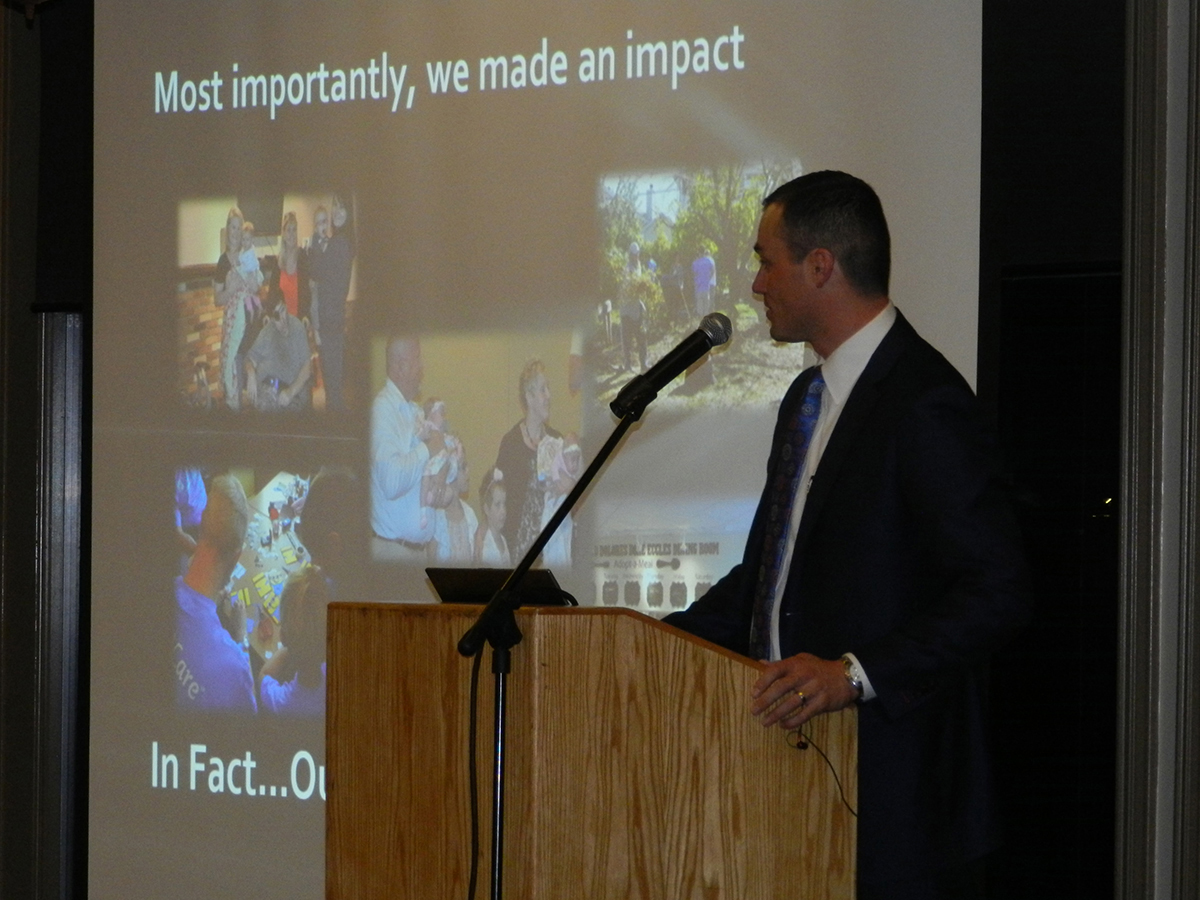Have you ever talked to someone who absolutely loves their job? Someone who is so passionate about what they do for a living that they almost seem to glow when they talk about it? I recently met someone like this.
We were attending the annual parent-teacher conference at our kid’s school. All of the teachers we spoke to were obviously dedicated professionals and it was wonderful to see that our son, Nash, is in such good hands. But one of his teachers stood out above the rest. Her name is Ms. Beck.
Nash has Down syndrome. That makes navigating the educational system a little more difficult for our family and, if possible, makes getting it right even more important. Not everyone can give our child the kind of help he needs, and not everyone recognizes the tremendous potential he has. I have to say, most of the people we’ve worked with really have been excellent, but believe me when I tell you that when a teacher goes above and beyond, we notice.
Ms. Beck has been teaching for 39 years, but she is still constantly searching for new ways to improve and to help her students to reach their fullest potential–because she loves her kids and she loves her job. Even in the few short months Nash has been in her class, we’ve seen tremendous improvement in his abilities. Part of that is just Nash, of course, but part of it has to be Ms. Beck.
It’s not a coincidence that Ms. Beck loves her job and is good at it. Of course, enjoying her work probably keeps her motivated. She’s not distracted by watching the clock. But, according to psychologist Mihály Csíkszentmihályi, enjoying your job actually makes you better at it—and being good at your job helps you enjoy it.
In his book, Finding Flow, Csíkszentmihályi describes what he calls a “flow state,” a kind of relaxed alertness that happens when you are operating at your full potential and doing something that matters to you. It could be a hobby, an athletic pursuit, or your job. People who enter flow states more often are happier and more fulfilled than those who don’t. And flow itself is a sign that you’re giving everything you’ve got, that your abilities are perfectly matched for the task at hand.
The evidence is clear; if you’re not enjoying your work, you’re not living up to your full potential.
So, I must ask, do you have the same passion for your job that Ms. Beck does? Do you feel like your existing career is allowing you to have the biggest positive impact on others?
Here are two questions that, if answered honestly, will give you great insight as to how passionate you really are about your career.
1. Do you think about work for fun?
This isn’t about not taking time off, and it definitely isn’t about obsessively worrying over your job. I don’t mean that you shouldn’t have other interests, either. I mean, do you enjoy thinking about your work so much that you do it when you don’t have to? Does your job feel like a favorite hobby you’re lucky enough to get paid for? I’m sure Ms. Beck spends many of her waking moments outside of the classroom thinking about her students and what more she could do to help them. Her love of her job shows!
2. On Sunday night at 8pm, are you excited to go to work the next day?
For many of us, Sunday night has a dreary feel. We don’t even want to think about going back to work the next day. Maybe you think that’s just what working for a living means—but it doesn’t have to! If you’re really passionate about your career, then Sunday night actually has a Christmas Eve feel to it. You’re excited for Monday. Again, that doesn’t mean not taking time off. You’ll still look forward to the weekend and a change of pace (though Friday at 5pm isn’t quite as exciting). But if you’re dreading Monday morning, then you don’t like your job, even if you do like the paycheck or some other aspect of it.
You spend most of your waking hours at work, so you owe it to yourself to make those hours worth it. This is your life we’re talking about. You’ve got one shot to make it count!
In 2003, I was fortunate enough to find a career that I fell in love with. I love Sunday nights, and I love thinking about innovative ways to help my financial professionals reach their ultimate goals, both on and off the field. So I know first-hand that the kind of passionate engagement I’m talking about is real.
Imagine if Ms. Beck had spent her career as something other than an educator—or, for that matter, a financial adviser (not everybody falls in love with the same kind of work). Life would have been so much less fulfilling for her—and for my son, Nash. Her love for her work is really making a difference for him.
If Sunday night has a dreary feel to it and the last thing you want to think about is work, you owe it to yourself to explore new opportunities. There is so much good you can accomplish if you allow yourself to dream a little and pursue your true passions.
CRN202304-279841

